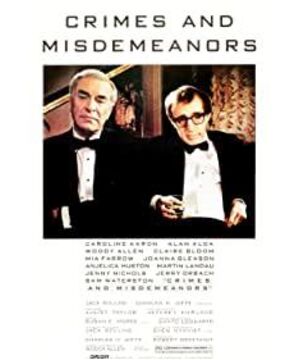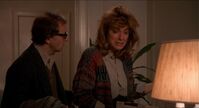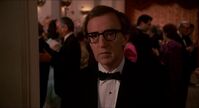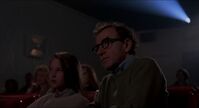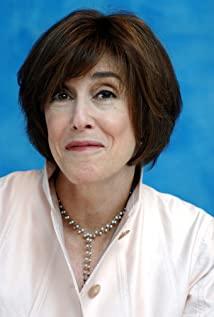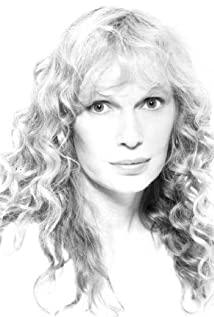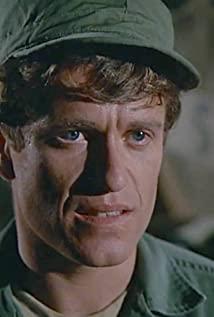begins with the skeptical pessimism in the Jewish context, and finally the existentialist "choice precedes existence". Is this the inevitable way out for such people? This old man who tends to be a hidden pedophile (the niece in this film, the female college student in the good couple, etc.) has always been swinging and transforming between Dostoevsky, Nietzsche, Schopenhauer, and Hitler. The ophthalmologist and producer in the play are two clones of Woody Allen. Violating the precepts or repentance, killing or returning home, he has the freedom to make assumptions in the movie. Understanding human nature and destiny is the starting point of his film. Whether he can find a way out through this is the destination of his movie, and having a way out is better than staring at the "black vacuum" when he died.
Definition of
comedy Comedy is tragedy plus time. This is Woody's ridicule of Liszt's comedy concept as donkeys in the satire. I agree with this, although it is a bit mean. The tragedy of ancient Greece is to show you the destruction of "the sublime". (Usually because of the fate of the God of Destiny) Modern tragedies are "alienating" people to you! ! !
The metaphor of the movie
Every transition in the play is performed by Woody Allen sitting in the theater watching a black and white film. The lines in the play described the embarrassing situation faced by the characters in the play. We sit down the stage and watch the play. The people in the play sit down the stage and watch the play in the play. Who is sitting down the stage and watching us? God? ourselves? What is the audience's knowing smile?
View more about Crimes and Misdemeanors reviews


